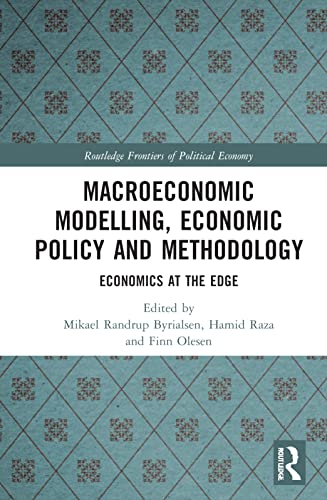

Most ebook files are in PDF format, so you can easily read them using various software such as Foxit Reader or directly on the Google Chrome browser.
Some ebook files are released by publishers in other formats such as .awz, .mobi, .epub, .fb2, etc. You may need to install specific software to read these formats on mobile/PC, such as Calibre.
Please read the tutorial at this link: https://ebookbell.com/faq
We offer FREE conversion to the popular formats you request; however, this may take some time. Therefore, right after payment, please email us, and we will try to provide the service as quickly as possible.
For some exceptional file formats or broken links (if any), please refrain from opening any disputes. Instead, email us first, and we will try to assist within a maximum of 6 hours.
EbookBell Team

4.7
76 reviewsDemonstrating that there are (superior) alternatives to the modern macroeconomic mainstream and its DSGE (dynamic stochastic general equilibrium) models, this book presents the cutting edge in macroeconomic modelling, economic policy, and methodology from the perspective of heterodox economic thinking.
The first part of the book explores methodological issues, advocating for a stronger ethical consideration in macroeconomics and for the adoption of a strategy of pluralism to ensure that macroeconomic theory is capable of adapting to real-world issues. The second part highlights recent trends in empirical Stock-Flow Consistent models by collecting a group of the most well-developed empirical models of five different economies: the Danish, the Dutch, the French, the Italian, and the Argentinian models. In all five cases, the models are used to discuss various policy aspects of the individual economies. Finally, the book explores issues of macroeconomic policy which are largely neglected by mainstream economists including financial (in)stability and macro imbalances. The book emphasizes the need for investigating sectoral balances, which are crucial elements for investigating imbalances from the heterodox perspective.
This book will be of significant interest to students and scholars of macroeconomics, economic modelling, economic methodology and heterodox economics more broadly.